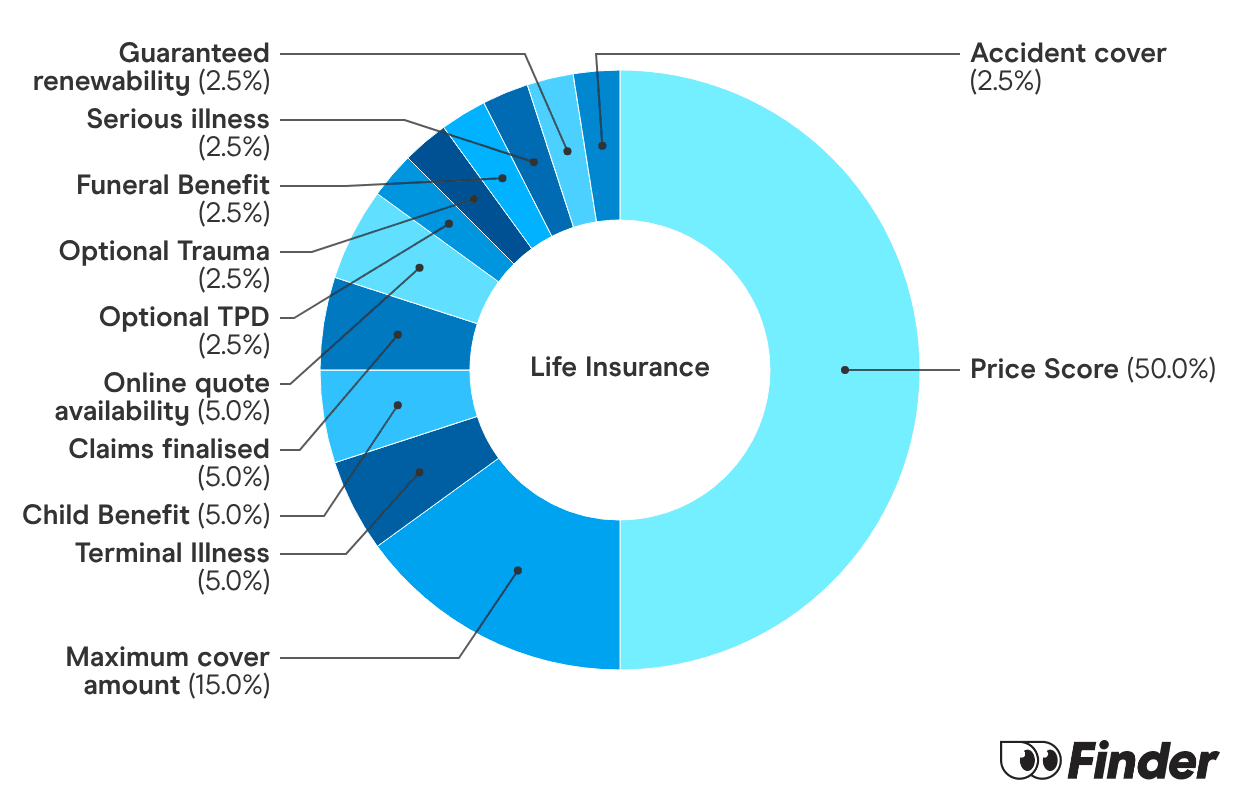Why compare life insurance with Finder?
-
You pay the same price as buying directly from the life insurer.
-
We're not owned by an insurer (unlike other comparison sites).
-
We've done 100+ hours of policy research to help you understand what you're comparing.







